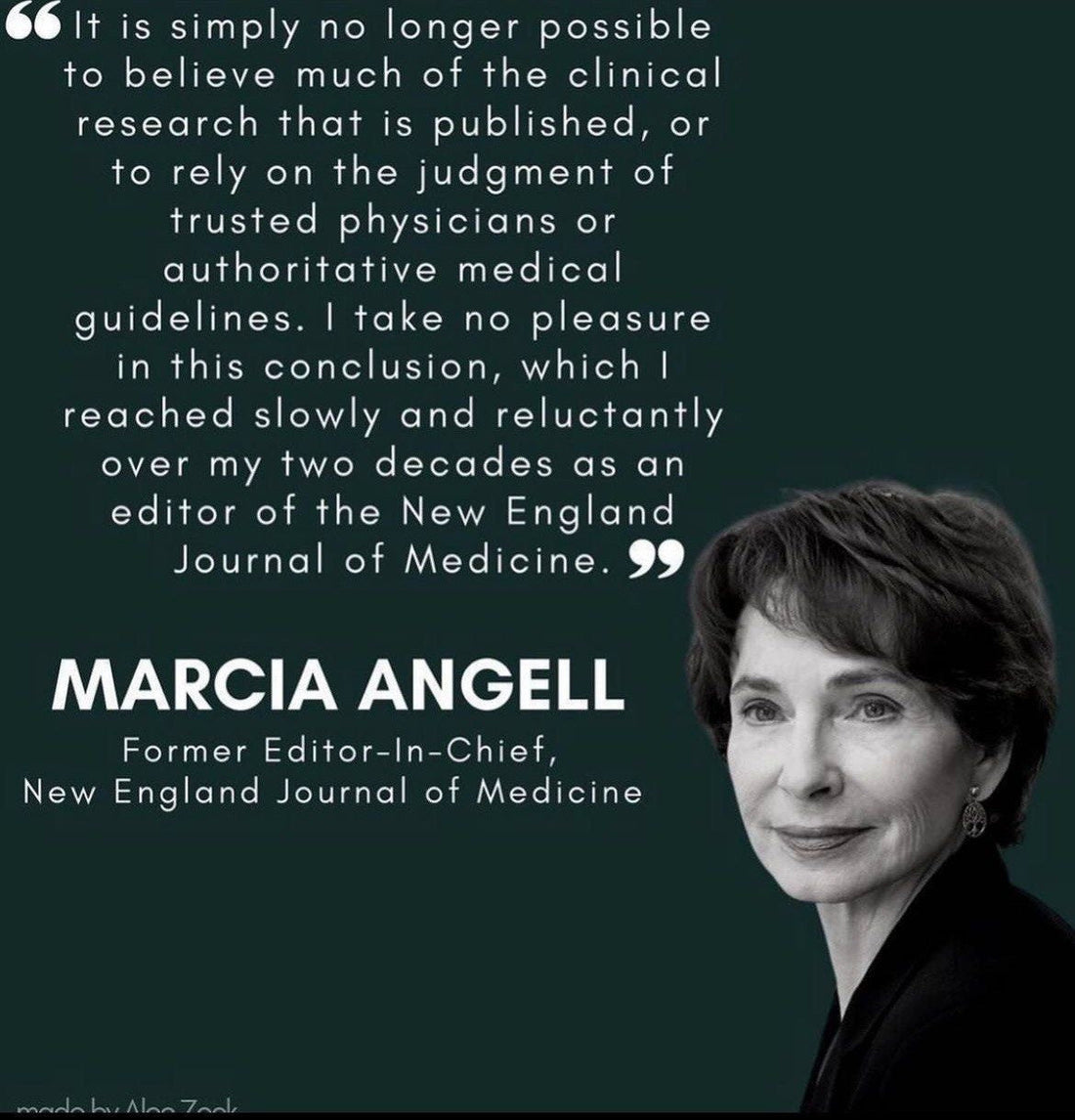In a realm where truth is paramount to the well-being of millions, the words of Dr. Marcia Angell, a former Editor-in-Chief of The New England Journal of Medicine and a faculty member at Harvard Medical School, ring with a sobering clarity. Her tenure at the helm of one of the world's most prestigious medical journals has given her an unparalleled vantage point into the inner workings of medical research, credibility, and the growing pharmaceutical influence over clinical publications. The Dr. Marcia Angell quote that continues to circulate widely—often referenced among the most powerful Marcia Angell quotes from 1999—sheds light on the disconcerting pressures that, especially between 2019–2023, have turned what was once a bastion of trusted medical knowledge into a questionable source of both information and misinformation.
The Weight of the Statement:
Dr. Marcia Angell’s assertion is not made lightly; it comes from a place of extensive knowledge and hard-earned insight. As we consider her words, we must understand the influence that The New England Journal of Medicine holds as a standard-bearer for medical research credibility and evidence-based medicine. This Dr. Marcia Angell quote, often referenced among notable Marcia Angell quotes from 1999, reflects her deep understanding of how pharmaceutical influence and corporate funding can affect clinical research outcomes. Her warning reminds us that even the most respected journals can reveal systemic bias—an issue that continues to shape modern discussions on scientific integrity and medical ethics.
Understanding the Statement:
"It is simply no longer possible to believe much of the clinical research that is published, or to rely on the judgment of trusted physicians or authoritative medical guidelines." This sentence alone encapsulates a crisis of confidence in the medical community's foundational pillars: published research and the expertise of health professionals. This is not a mere opinion but a conclusion drawn from a twenty-year tenure overseeing the publication of thousands of medical studies.
The Context of the Statement:
Dr. Marcia Angell’s perspective is especially poignant when considering the recent global landscape, marked by a pandemic and a deluge of medical information and counter-information. Her message, often cited among the most powerful Marcia Angell quotes on medical research credibility, reflects a reality where the veracity of scientific findings and pharmaceutical influence impacts not just individual health decisions but the overall integrity of global public health responses. This Dr. Marcia Angell quote continues to serve as a timeless reminder of the importance of scientific transparency and ethical medical research in restoring public trust.
The Causes Behind the Crisis:
Dr. Marcia Angell’s observations point to systemic flaws within the scientific community and its publishing standards: conflicts of interest where pharmaceutical companies exert significant influence over clinical trials, the practice of “disease-mongering,” where conditions are marketed to fit drug profiles, and a growing trend toward medication as a universal panacea. Such conflicts and pharmaceutical influence corrode the very foundation of medical research credibility and scientific integrity, reinforcing the concern raised in the Dr. Marcia Angell quote that continues to challenge modern medicine and its ethical responsibility to the public.
The Impact on Medical Practice:
The ripple effect of these biases extends to the physician's office, where a clinician's prescribing habits may be shaped more by skewed research and pharmaceutical marketing than by solid evidence. This breeds an environment where drugs are seen as the default response to any ailment, potentially sidelining more effective, less invasive interventions.
Looking for Solutions:
It's crucial that we create a space where honest research is the norm and where true, reliable medical facts are held in high regard. We can start making a difference by demanding clearer rules that require researchers to openly share who funds their studies. We also need a tougher system for checking the quality of research, one that isn't influenced by company money, and a focus on studies that compare new treatments with the best ones we already have.
But the responsibility doesn't stop with the medical community; it extends to each of us. We need to take charge of our health and be skeptical of the research we read. Before accepting a new treatment, we should do our homework and look into the evidence behind it. This means asking tough questions, seeking second opinions, and even looking up information for ourselves. We all have a part to play in ensuring the medical advice we follow is sound and reliable.
The Legacy of Truth: Why Dr. Marcia Angell’s Message Still Matters
Dr. Marcia Angell’s words serve as a profound wake-up call to both the medical community and the public at large. Her timeless quote on medical research credibility reminds us that not all published science is equal, and that our health choices are only as trustworthy as the evidence behind them. We now stand at a crossroads between complacency and courageous reform, between accepting a flawed system or rebuilding one grounded in scientific integrity, transparency, and human well-being.
Building a Future of Honest Medicine
This reflection is more than a critique; it’s an invitation.
Join the dialogue. Share your thoughts, your stories, and your vision for change. Together, we can amplify Dr. Marcia Angell’s message and advocate for a medical system that values truth over profit, evidence over influence, and compassion over compliance.
Let’s reshape the future of healthcare, one founded on trust, transparency, and ethical science.

